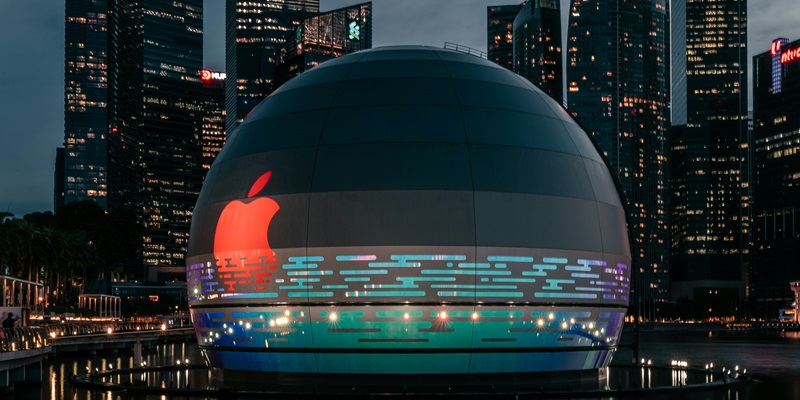As the world becomes increasingly reliant on artificial intelligence (AI), Apple has positioned itself as a major player in the market. Recent reports indicate that the tech giant has acquired 21 AI start-ups since 2017, emphasizing its commitment to incorporating AI into its mobile devices. This article delves into Apple’s acquisition strategy, the edge AI opportunity it presents, the development of an on-device AI solution, and the expectations surrounding the company’s plans.
Apple’s acquisition strategy
Backed by data from Pitchbook, a Financial Times report reveals that Apple has been actively acquiring AI start-ups. Since 2017, the company has made 21 acquisitions in the field, signaling its dedication to incorporating AI into its product ecosystem. Additionally, Wedbush Securities analyst Daniel Ives predicts that Apple will continue to explore sizable acquisitions in the AI space throughout the year.
Apple’s Edge AI Opportunity
Morgan Stanley analyst Erik Woodring highlights the significant potential of Apple’s “Edge AI” opportunity. In an extensive note to clients, Woodring explains that Apple’s efforts in bringing AI features to market are accelerating, increasing the likelihood of an “AI iPhone” launch as soon as Fall 2024. This prediction implies that Apple aims to embed AI capabilities directly into its mobile devices, offering users a seamless and sophisticated AI experience.
On-device AI solution
Apple’s aspiration goes beyond simply integrating AI into its devices; the company wants to create an on-device generative AI solution. This ambitious goal involves leveraging the power of the Neural Engine in Apple’s existing chips, combining it with their own innovations to enable on-device intelligence. By processing data locally on their devices, Apple aims to enhance user privacy and reduce reliance on cloud-based AI services.
Lack of visibility into future plans
Apple is known for its secrecy, and when it comes to its plans for the next few months, expectations should be tempered. The current stage can be likened to a scene from “Hitchhiker’s Guide to the Galaxy” where pundits and philosophers offer conflicting opinions about what lies ahead. Apple keeps its cards close to its chest, leaving industry experts and enthusiasts alike with little visibility into their imminent AI developments.
Anticipated announcement at WWDC
All eyes will be on Apple at the upcoming Worldwide Developers Conference (WWDC) in June. This event presents a valuable opportunity for Apple to showcase its latest advancements and potentially shed light on its AI initiatives. As developers and tech enthusiasts eagerly await updates, WWDC serves as a crucial platform where Apple can unveil new features, tools, and frameworks that further push the boundaries of AI integration.
Impact of improved AI on devices
Morgan Stanley’s Woodring emphasizes that once Apple enhances the AI capabilities of its devices, it can expect to experience a strong “Edge AI refresh cycle.” This refresh cycle refers to a surge in demand for upgraded devices as consumers seek to leverage the enhanced AI features. From improved voice assistants to personalized recommendations and enhanced photo editing capabilities, advancements in on-device AI have the potential to revolutionize the user experience and solidify Apple’s dominance in the market.
With its strategic acquisitions and unwavering commitment to AI, Apple is primed to lead the industry in on-device AI solutions. The company’s push for an “AI iPhone” demonstrates its dedication to bringing the power of AI directly to consumers’ hands. As WWDC approaches, the anticipation for new insights and updates grows. Apple’s focus on AI will undoubtedly shape the future of its product lineup, leaving consumers excited for the pervasive AI applications that lie ahead.

